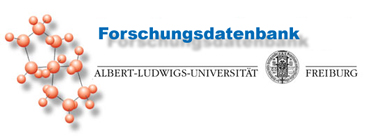| [Back to search results] |
 |

Binding and Retrieval of Control states
Description of the project:How do people shield themselves against distractions and stay focused to pursue current goals? Do we change behavior dynamically in order to adapt to a challenging situation or do we retrieve from memory previous instances that allowed us to solve the task in the past? Traditionally, psychological theories have described action control as slow and effortful top-down processing. In contrast to this view, binding accounts hold that skilled behavior is organized by bottom-up processes that integrate and retrieve stimulus-response episodes quickly and without effort from memory. Although a rather simple concept, binding has been extremely successful in providing parsimonious explanations for phenomena that have been previously thought of as top-down influences on behavior (e.g., negative priming). A prominent example for top-down effects are cognitive control processes. In the last decade, a considerable amount of research has been dedicated to the discussion whether cognitive control and in particular the Gratton-effect is best explained in terms of top-down control or bottom-up feature binding. The Gratton effect refers to a behavioral data pattern showing that after the experience of conflict between mutually incompatible responses in the past, future behavior becomes optimized and people get better at shielding against distracting influences of conflict. This effect is particular interesting since it has been used as the workhorse of both empirical and theoretical work on cognitive control. In a recent attempt to reconcile this controversy, it has been suggested that event files are not limited to S-R features, but may also incorporate more abstract control-states. Control states can be described as mental representations of control parameters that bias attentional selectivity. For instance, according to connectionist models like the conflict monitoring account, control parameters are simulated as a change in the weights between nodes that connect a stimulus input layer and a task layer. Thus control states could capture these changes in the attentional weights as an instance that can be retrieved subsequently. Furthermore, control states are supposed to be abstract in the sense that they are independent of concrete stimulus or response features. While this proposal has considerable implications for theorizing on binding and cognitive control, evidence for transient bindings of control states is limited. In this project, we aim to study precisely this new idea, i.e., how control states become integrated into an event file and how a subsequent re-occurrence in the next trial of one of these elements triggers a retrieval of control states.Runtime:
contact person: Dignath, D.
Email: dignath@psychologie.uni-freiburg.de
Start of project: 01.09.2019Project Management:
End of project: 31.08.2022
Albert-Ludwigs-University FreiburgFinancing:
Dignath, D., Kiesel, A.
Institut für Psychologie
Abteilung für Allgemeine Psychologie
Engelbergerstr. 41
79106 Freiburg i. Br.
Germany
Phone: 0761 203 2489
Fax: 0761 203 2490
Email: sekr.allgpsy@psychologie.uni-freiburg.de
http://www.psychologie.uni-freiburg.de/einrichtungen/AllgemeinePsychologie/
Actual Research Report
- DFG FOR 2790, DFG